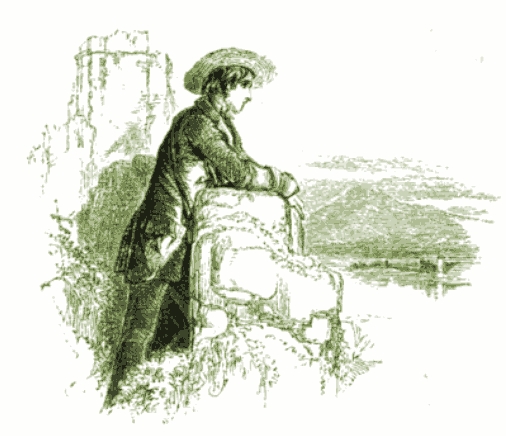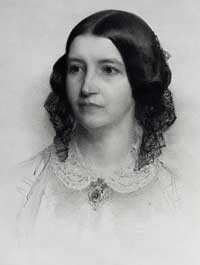Hyperion (Longfellow) on:
[Wikipedia]
[Google]
[Amazon]
 ''Hyperion: A Romance'' is one of
''Hyperion: A Romance'' is one of
 The initial publication of ''Hyperion'' met with lukewarm or hostile critical response. Its publication was overshadowed by Longfellow's first poetry collection, ''Voices of the Night'', which was published five months later. Critic
The initial publication of ''Hyperion'' met with lukewarm or hostile critical response. Its publication was overshadowed by Longfellow's first poetry collection, ''Voices of the Night'', which was published five months later. Critic
''Hyperion''
at
 ''Hyperion: A Romance'' is one of
''Hyperion: A Romance'' is one of Henry Wadsworth Longfellow
Henry Wadsworth Longfellow (February 27, 1807 – March 24, 1882) was an American poet and educator. His original works include the poems " Paul Revere's Ride", '' The Song of Hiawatha'', and '' Evangeline''. He was the first American to comp ...
's earliest works, published in 1839. It is a prose romance which was published alongside his first volume of poems, ''Voices of the Night''.
Overview
''Hyperion'' follows a young American protagonist named Paul Flemming as he travels through Germany. The character's wandering is partially inspired by the death of a friend. The author had also recently lost someone close to him. Longfellow's first wife, Mary Storer Potter, died inRotterdam
Rotterdam ( , ; ; ) is the second-largest List of cities in the Netherlands by province, city in the Netherlands after the national capital of Amsterdam. It is in the Provinces of the Netherlands, province of South Holland, part of the North S ...
in the Netherlands after a miscarriage in 1836; Longfellow was deeply saddened by her death and noted in his diary: "All day I am weary and sad ... and at night I cry myself to sleep like a child."
''Hyperion'' was inspired in part by his trips to Europe as well as his then-unsuccessful courtship of Frances Appleton, daughter of businessman Nathan Appleton. In the book, Flemming falls in love with an Englishwoman, Mary Ashburton, who rejects him.Calhoun, Charles C. ''Longfellow: A Rediscovered Life''. Boston: Beacon Press, 2004: 143.
Publication history
Longfellow's first prose work, '' Outre-Mer'' (1835), was met with an indifferent reception. Its lackluster performance as well as Longfellow's commitments to hisHarvard College
Harvard College is the undergraduate education, undergraduate college of Harvard University, a Private university, private Ivy League research university in Cambridge, Massachusetts, United States. Part of the Harvard Faculty of Arts and Scienc ...
professorship prevented him from producing significant literary works for a time until his poem " A Psalm of Life" and ''Hyperion''. The novel was published in 1839 by Samuel Coleman, who would also publish ''Voices of the Night'', though he went bankrupt shortly after. Longfellow was paid $375 for it and was optimistic. As he wrote to his father: "As to success, I am very sanguine... it will take a great deal of persuasion to convince me that the book is not good."
As Longfellow's fame increased over time, so did interest in his early work. By 1857, he calculated ''Hyperion'' had sold 14,550 copies.
Critical response
 The initial publication of ''Hyperion'' met with lukewarm or hostile critical response. Its publication was overshadowed by Longfellow's first poetry collection, ''Voices of the Night'', which was published five months later. Critic
The initial publication of ''Hyperion'' met with lukewarm or hostile critical response. Its publication was overshadowed by Longfellow's first poetry collection, ''Voices of the Night'', which was published five months later. Critic Edgar Allan Poe
Edgar Allan Poe (; January 19, 1809 – October 7, 1849) was an American writer, poet, editor, and literary critic who is best known for his poetry and short stories, particularly his tales involving mystery and the macabre. He is widely re ...
briefly reviewed ''Hyperion'' in ''Burton's Gentleman's Magazine
''Burton's Gentleman's Magazine and American Monthly Review'' (sometimes ''...and Monthly American Review'' or, more simply, ''Burton's Magazine''), was a literary publication published in Philadelphia from 1837 to 1840. Its founder was William ...
'' in October 1839 and concluded the book was "without design, without shape, without beginning, middle, or end... what earthly object has his book accomplished? — what definite impression has it left?" Acknowledging the poor public reception, critic John Neal
John Neal (August 25, 1793 – June 20, 1876) was an American writer, critic, editor, lecturer, and activist. Considered both eccentric and influential, he delivered speeches and published essays, novels, poems, and short stories between the 1 ...
nevertheless predicted the novel "will be a treasure with the few that know its value". In 1899, composer Edward Elgar
Sir Edward William Elgar, 1st Baronet, (; 2 June 1857 – 23 February 1934) was an English composer, many of whose works have entered the British and international classical concert repertoire. Among his best-known compositions are orchestr ...
sent a copy of the book to his Austrian colleague Hans Richter, noting it as "the little book... from which I, as a child, received my first idea of the great German nations". 20th-century literary scholar Edward Wagenknecht referred to ''Hyperion'' as a "disorganized Jean-Paul Richter kind of romance".
The thinly veiled autobiographical elements of ''Hyperion'' did not go unnoticed; Frances Appleton was aware that she was the basis for the Mary character. Embarrassed by this, as biographer Charles Calhoun writes, she "displayed a new degree of frostiness toward her hapless suitor." After receiving a copy as a gift from the author, she wrote in a letter: "There are really some exquisite things in this book, though it is desultory, objectless, a thing of shreds and patches like the author's mind.... The hero is evidently himself, and... the heroine is wooed (like some persons I know have been) by the reading of German ballads in her unwilling ears. " Longfellow himself admitted the deliberate resemblance in a letter: "The feelings of the book are true; the events of the story mostly fictitious. The heroine, of course, bears a resemblance to the lady, without being an exact portrait."
It was not until May 10, 1843, seven years after his wooing began, that Frances Appleton wrote a letter agreeing to marry. After receiving the letter, Longfellow was too restless to take a carriage and instead walked 90 minutes to her house. They were married shortly thereafter. Nathan Appleton bought the former Craigie House as a wedding present to the pair and Longfellow lived there for the rest of his life.
Analysis
Through the character of Paul Flemming, Longfellow airs his own aesthetic beliefs. In his dialogue, Flemming provides quips like "The artist shows his character in the choice of his subject" and "Nature is a revelation of God; Art is a revelation of man". The book often alludes to and quotes from German writers such asHeinrich Heine
Christian Johann Heinrich Heine (; ; born Harry Heine; 13 December 1797 – 17 February 1856) was an outstanding poet, writer, and literary criticism, literary critic of 19th-century German Romanticism. He is best known outside Germany for his ...
and Johann Wolfgang von Goethe
Johann Wolfgang (von) Goethe (28 August 1749 – 22 March 1832) was a German polymath who is widely regarded as the most influential writer in the German language. His work has had a wide-ranging influence on Western literature, literary, Polit ...
. Goethe's ''Wilhelm Meisters Lehrjahre'' (1796) was a likely model for the book.Adams, Byron. ''Edward Elgar and His World''. Princeton University Press, 2007: 65. The book's descriptions of Germany would later inspire its use as a companion travel guide for American tourists in that country.Zacharasiewicz, Waldemar. ''Images of Germany in American Literature''. University of Iowa Press, 2007: 23.
References
External links
''Hyperion''
at
Project Gutenberg
Project Gutenberg (PG) is a volunteer effort to digitize and archive cultural works, as well as to "encourage the creation and distribution of eBooks."
It was founded in 1971 by American writer Michael S. Hart and is the oldest digital li ...
{{Authority control
1839 American novels
Novels by Henry Wadsworth Longfellow
Novels set in Germany